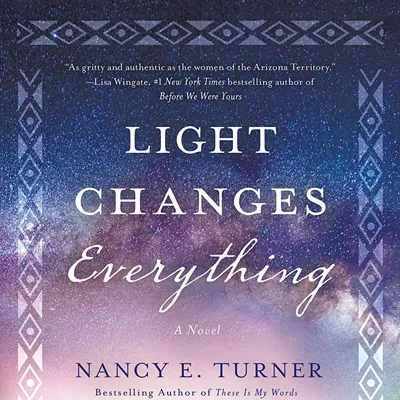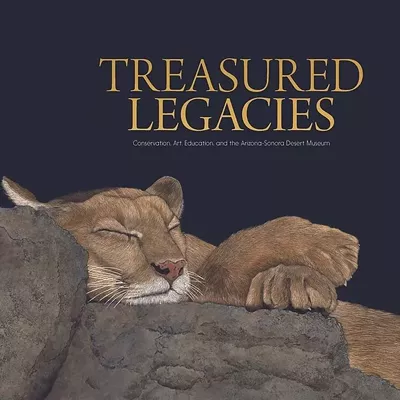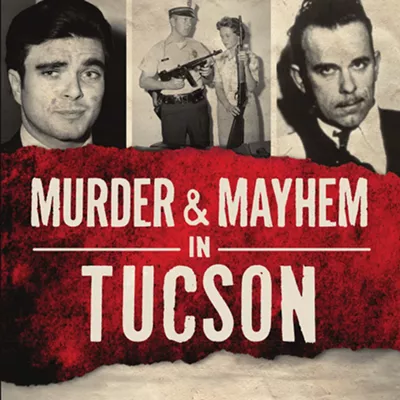The 26-year-old heroine of Lenore Carroll's novel Uncertain Pilgrims is in a dark season indeed: Within the first five paragraphs, we learn that she's recently lost both her father and her newborn child. But the story quickly veers from this bad news to the fanciful, moving tale of the road trip Carla takes to clear her head. Uncertain Pilgrims, though occasionally undermined by a jumpy narrative structure and a bland voice, is a touching tale of a woman who escapes into the past in order to plot her future.
As we encounter her in her Honda headed west, Carla explains that she seeks solace in a history habit--she calls libraries and museums "my time machines"--so she's driving from her home in Kansas City along the Santa Fe Trail, hitting every fort, museum and marker along the way. At her first stop, she meets Tom Jackson and his elderly father, Dale, who are making a similar trip. The gregarious Dale takes to Carla, calling her "Sis," and protectively insists that they keep meeting up along the way. Tom is quieter and brooding but proves to be a worthwhile companion. As they stop at Forts Riley, Bent, Union and Dodge, the three grow closer, and Carla learns that Dale is in failing health. An attraction develops between her and Tom, which finds fulfillment just as Dale falters and is hospitalized. Faced with this new trauma, Carla must decide whether to stay by Tom's side or forge ahead on her own.
Along the way, Carla considers telling Dale and Tom of her recent misfortune, but relies instead on tales of 18th century female travelers. Carroll inserts flashbacks depicting Libby Custer, Susan Magoffin and other women who made similar stops as they ventured west. Of course, their trips were slightly more dangerous: One woman is given a handgun by her husband and told to kill herself and her child if they're taken by Indians; another loses a child during its birth; all deal with longings that became burdens as they went unfulfilled in the harsh, rugged West. Each flashback helps Carla put her own journey in perspective; she relies on the women and their tales as though they were friends offering solace.
Carroll's pacing is excellent; she is clearly experienced (Uncertain Pilgrims is her sixth novel; others include The Heart Remembers and Love With a Warm Cowboy). She allows Carla's emotions to gently seep into the tale, resisting shock value and making the reader feel like a patient, dependable friend. Still, the transitions are sometimes awkward: Carla is narrator, but occasionally, the text will leap jarringly away from her to Tom, or Dale, or to some past time.
It is clear that Carroll researched Carla's journey thoroughly. Uncertain Pilgrims could double as a travel guide, thanks to Carroll's insider references and thorough descriptions. She mentions that Santa Fe Trail enthusiasts are called "rut nuts," knowingly describes the "dry, deceptive Tucson heat" and details "ristras of drying red peppers" hanging outside restaurants. She also manages to sum up Santa Fe in a single sentence: "I learned that what looked great in Santa Fe didn't look right back home," Carla muses.
While Carroll is a talented storyteller, she is merely a capable lyricist. Her writing is clear and neat, but it often lacks liveliness--it could use a shot of wit or irony. She also has a tendency toward repetition (twice she likens the smell of grass to that of a new broom) and fluctuates in her style (at one point, an 18th century wife is speaking to her diary in a simple, affected first person; then suddenly, her diary is filled with lengthy, novelistic dialogue).
Carroll's attention to detail is ripe but also inconsistent. The landscape itself comes alive with sage, crop circles and thunderstorms, but she could stand to tell us a bit more about the travelers themselves. While we learn that Carla has curly hair, we learn little of her features or mannerisms, so we can't picture her. The same goes for Tom: When Carla first encounters him, she says he's "OK good-looking, nothing special." Little further physical description is provided, so the sudden passionate attraction seems shallow and odd.
All things considered, Uncertain Pilgrims is a journey worth taking. While the book is ostensibly about travel, relationships form its core. The spark between Carla and Tom is short-lived, but Uncertain Pilgrims performs a much more important duty than a romance novel: It deals with the heavier subject of relationships' messy aftermaths. Carroll shows that passion, devotion and heartbreak span generations, and that love for oneself trumps all three. And in that sense, even if Uncertain Pilgrims isn't witty, it's wise.








